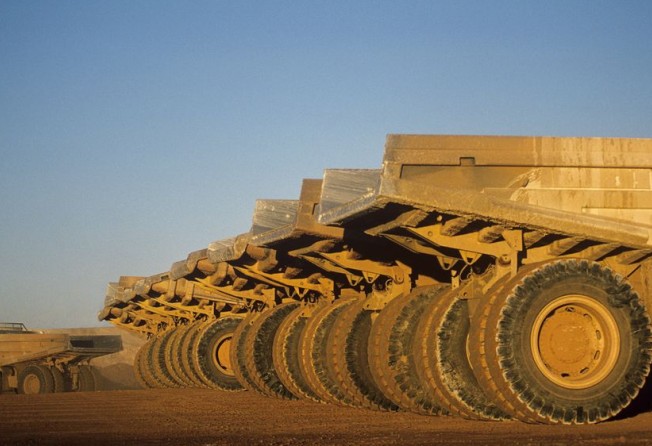Economy battles commodities slump
Country's reliance on its mineral resources and Chinese spending leaves it vulnerable as exports decline. Reports by Tara Loader Wilkinson

Australia relies heavily on Chinese spending to boost its economy. It was one of the few developed countries not to go into recession during the global financial crisis, thanks to the demand from China for its resources.
World economic growth in recent years - particularly in China - has only increased the demand for commodities. Australia has been a key beneficiary of this demand: it's the world's leading producer of rutile, zircon, bauxite, iron ore and ilmenite; the second-largest producer of alumina, gold, lithium, manganese ore, lead and zinc; the third-largest producer of uranium; and the fourth-largest producer of silver, nickel and black coal. And China is Australia's best customer.
But now the inevitable has happened - China's economic growth is slowing down, from 7.4 per cent last year to a predicted 6.9 per cent by 2017, and so is its demand for commodities. According to international trade data, China's imports fell nearly 20 per cent last year, reflecting the lower demand for raw materials used in real estate construction. Reports have estimated that a 5 per cent slowdown in China's growth could cause commodity prices to fall by as much as a fifth.
And according to a recent report from the World Bank, a further slowdown in China will affect Australia and the rest of the Asia-Pacific. "There will be a significant negative impact on Australia and New Zealand, among the world's largest commodity suppliers ... given their tight links through trade, investment and aid," it said.
Meanwhile, commodities prices are continuing to slump, leaving Australia facing a collapse in export revenues. Australia's treasurer, Joe Hockey, recently forecast that iron ore will drop to A$35 (HK$198) per tonne, which could result in commonwealth revenue falling by A$25 billion over four years.
The nation's reliance on commodities can no longer be guaranteed, according to a recent report from the Australian government. "In an increasingly globalised and competitive commodity market, multinational mining companies continue to search for mineral deposits that will offer attractive returns on investment, particularly during periods of global financial stress," it warned.
Some experts are going as far to say the commodities crash could turn Australia into the new Greece. Iron ore is now trading at around A$50 per tonne, compared with a 2011 peak of around A$180 per tonne. Coal has diminished in value, now trading at A$60 per tonne compared with A$150 per tonne in the same time frame. Australia's resources make up nearly two-thirds of its total trade in goods and services, so these falls are inevitably having an effect on the wider economy. The country is making up the shortfall by borrowing more, raising the question of whether a long period of depressed commodity prices could lead to Australia replicating the Greek debt fiasco.
Shayne Harris, head of Sydney at Savills, agrees that the short-term outlook for Chinese resources exports out of Australia "are uncertain, especially with the weakening Australian dollar". He adds: "The prevailing view is that China's influence on the Australian economy has peaked, and that China's influence will continue to weaken with falling resource prices."
However, he says: "Most predictions for the coming months are that conditions will continue to weaken, but not dramatically."
Others are more sanguine. Peter Liesch, professor of international business at University of Queensland Business School, reckons that the low commodities prices are a temporary blip. "There is little likelihood that resources prices will remain at low levels for the long term. They might be expected to return to a higher level as demand for resources overseas again picks up. This will depend on China - and the other countries Australia exports resources to - maintaining their enviable growth rates, which they are likely to strive to maintain."
Part of the problem, others point out, is that one day Beijing will stop paying top prices for commodities, especially now that it is cultivating its own domestic mines. Recently, China has taken steps to prop up its own mines by enforcing export controls and restricting certain imports of commodities. An even greater threat is the prospect of China's businesses turning green, requiring less fossil fuels and turning to renewable energy - something the government is keen to encourage. When that day comes, Australia needs to be diversified.